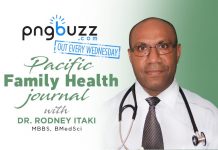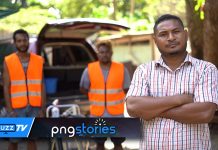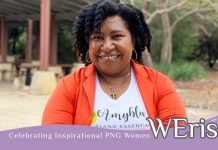Pacific Family Health Journal with Dr Rodney Itaki
Home Grown TB Research: Tailoring World Research Into Local Context.
“The journey is more important than the destination. The steps you take and the critical thinking you develop while doing research is the key part of learning when doing research”, that’s what Dr Andrew Masta once told me.
Dr Masta has a PhD in biochemistry and genetics and was Associate Professor in biochemistry at UPNG School of Medicine and Health Sciences (SMHS) before resigning to run his own business. He was one of my mentors early in my research career. Those words were echoing in my mind as I read through hundreds of journal research articles so that I could get a good grasp of what work was being done around the world using Genexpert technology to diagnose TB of the gland.
I read day and night. I printed research articles, took them home and would read them at any opportunity. One of my favorite reading places was the toilet. I would sit there reading my articles after answering nature’s call only to be reminded that someone else needed to come in by the big bang on the door. “This is the most important part of my research project” I kept reminding myself day and night as I kept uploading my mind with megabytes of research data.
The World Medical Association has a list of guidelines called the Helsinki Declaration and these guidelines guide medical researchers around the world. However, each country can have additional standards according to the countries’ laws, cultural practices and what would be accepted as morally right ways of doing things.
All these contribute to the research ethics and code of conduct and medical researchers are required to get ethical approval for any scientific research involving use of animals or humans. That was my next step – write up my research proposal and submit to the PNG Medical Research Advisory Committee for ethical approval.
But first, I needed to submit to the UPNG SMHS Research Ethics Committee for ethical approval. After weeks of writing and re-writing I had my first draft of my research proposal ready. I sent it to my supervisors – Dr Francis Bannick and Dr Evelyn Lavu for review and commenting. I knew there would be additional writing and correction but I was relieved and feeling very elated.
After months of anticipation my research proposal was approved. I spent the next 6 months seeing patients with suspected TB of the gland that came to PMGH for needle biopsy. I would explain to each patient my research and what I was doing and then I would ask if they wanted to participate. I also explained that their participation would benefit all patients with TB in PNG as the results would open up a new door for doctors to look for TB in PNG. Those who agreed signed the consent form. Parents would sign for their children.
From that experience I could see that almost all patients were happy and proud of something new in TB research in PNG. Most heart breaking was seeing children with TB.
Next week I will continue the story..
Dr Rodney Itaki, MBBS, BMedSci
Read Pacific Family Health Journal with Dr Rodney Itaki every Wednesday on PNGBUZZ.COM
Visit Dr Itaki’s blog here https://pacificfamilyhealth.wordpress.com











I sent it to my supervisors – Dr Francis Bannick and Dr Evelyn Lavu for review and commenting. I knew there would be additional writing and correction but I was relieved and feeling very elated.
I’ll definitely be coming back for more.
Perfectly balanced between detail and simplicity.
Perfectly balanced between detail and simplicity.
Great job, keep it up!
Nice Article
I am thrilled to announce that I have successfully passed the FCP_FMG_AD-7.4 exam with excellent marks! My preparation was expertly guided by the comprehensive study materials and practice tests from ValidTests.com. Their well-structured resources for the FCP_FMG_AD-7.4 certification were perfectly aligned with Fortinet’s exam objectives, enabling me to master key areas such as FortiManager administration, centralized management, and security policy configuration. I highly recommend ValidTests.com to anyone preparing for the FCP_FMG_AD-7.4 exam!
Pro Function Sports Injury Clinic offers specialized care for individuals dealing with plantar fasciitis, providing targeted assessments and evidence-based treatment plans to reduce heel pain and improve mobility. Their team focuses on identifying the root cause of discomfort and applying therapies such as manual treatment, corrective exercises, and gait evaluation to support long-term recovery. With a patient-centered approach, the clinic helps people return to daily activities and sports with greater comfort and confidence.